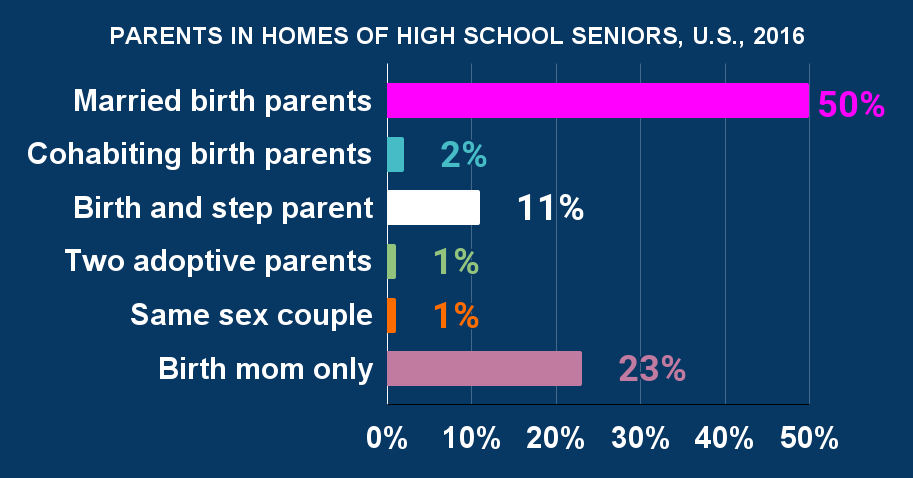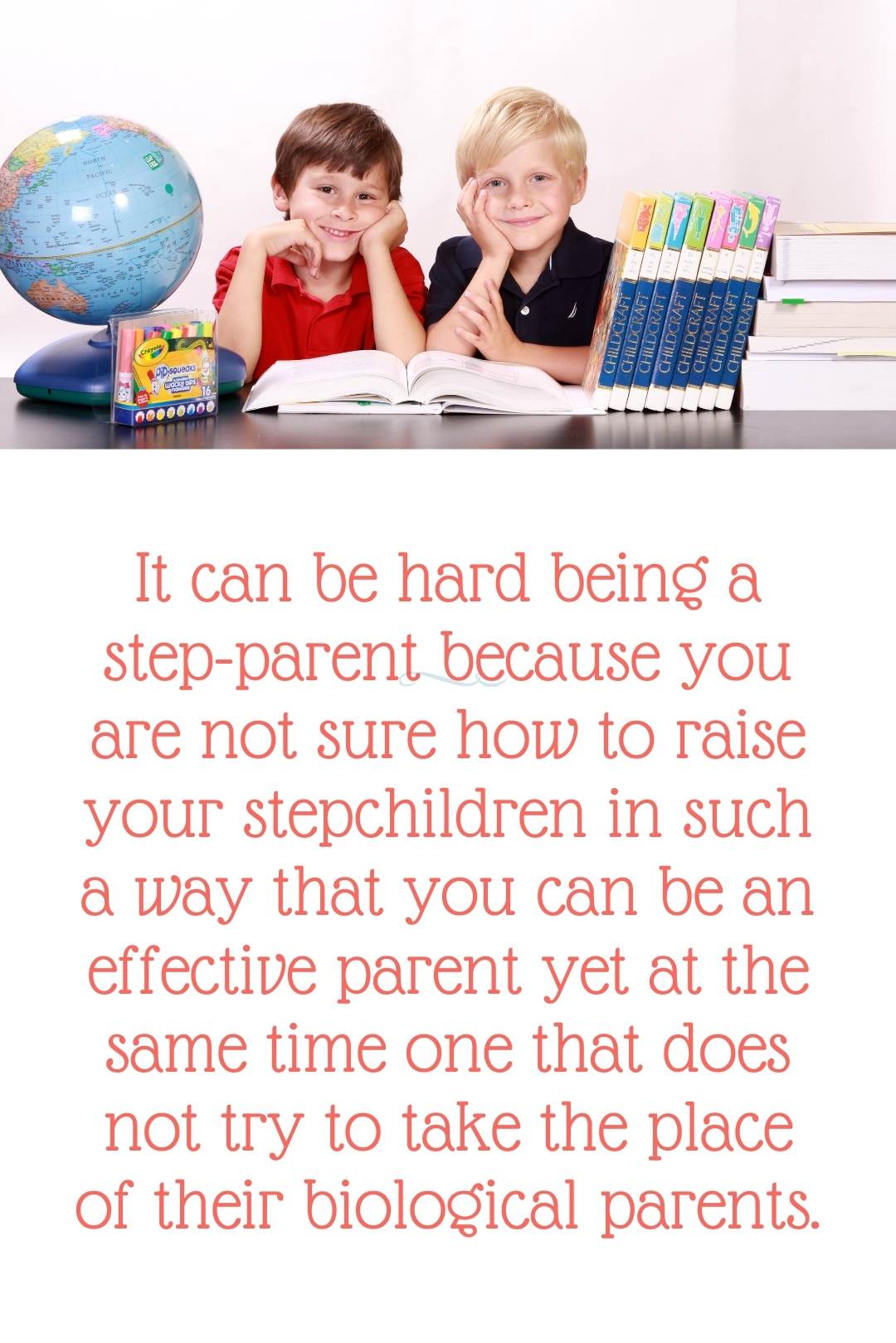13 Things a Step-Parent Should Never Do
WhatToGetMy Instructional Article
- It is now quite normal to marry someone who already has children from someone else.
- Those children then become your step-children and as much as you can love them and take on the role of an actual parent, there are boundaries that you can never cross.
- This is simply because you are not their biological parent which is a position that brings with it some extra rights that you are not privy to in normal circumstances.
It is very important to talk about things that a step-parent should never do in this day and age because families with step-parents now form a significant percentage of families as shown by research from the Institute for Family Studies.

It can be hard being a step-parent because you are not sure how to raise your stepchildren in such a way that you can be an effective parent yet at the same time one that does not try to take the place of their biological parents.

Then there is also the pushback that you might face from the children who, depending on how young they are, might resent you for being the perceived reason their parents are not together.
These and a host of other issues that may arise, are the reason why being a stepparent is one of the toughest jobs there are and why you might occasionally find yourself thinking, “if only there was a step-parent’s guide that would help me through this”.
While there might not be a one size fits all guide for every step-parent because every family has its own dynamics, there are generally certain things a step-parent should never do or say in order not to overstep their role as the step-parent…
1. Implementing too many new changes
This is one of the best step-parenting advice there is and is especially useful when the divorce, separation, or death is still quite fresh.
The children will have been used to a certain way of doing things with their biological parents. If you then try to implement your way of doing things on them too fast, it might lead to them having step-parenting issues with you because they will view you as some kind of dictator who is bent on imposing their will.
It is best to give them time and gradually get them to see and respect your way of doing things as they become closer to you.
2. Taking their behavior to heart
Raising stepchildren can be quite daunting when you first enter the picture because they might treat you with a lot of resentment stemming from them subconsciously and sometimes consciously blaming you for the separation of their parents.
They might even try to exclude you as much as they can in activities with your spouse just to make you know that you are not welcome and this can understandably lead to a step-parent feeling left out.
Should this happen, you mustn’t take it to heart because they are children and are not capable of processing emotions or understanding situations as well as you can.
Taking their actions to heart can lead to you acting out against them which would only make things worse which is why it is one of the things a step-parent should never do.
3. Trying to take the place of the biological parent
Arguably all books on step-parenting will tell you that it is wrong for a step-parent to try to take the place of a biological parent especially when the biological parent is still in the picture.
You might be doing this when you tell them to call you “dad” or “mom” or when you try to teach them things and take them to events that would be more suited to their biological parents. This is wrong of you because you would be taking away the biological parents’ chance of doing it.
This begs the question, “what is the role of a stepmother or stepfather?”. Your role is more of a mentor with benefits. You are there to train your stepchildren and give them advice as best you can but you are not to infringe upon the demands and rights of the biological parent.
4. Disciplining the child
A very hot topic when dealing with stepchildren is that of step-parents and discipline. It is generally frowned upon to engage in step-parenting discipline because disciplining a child is usually a primary role of the child’s biological parents.
If you are not well bonded with your stepchildren and you attempt disciplining them, it might create problems with the children who might view you as an authoritarian. It might also bring you into conflict with your spouse and their ex who might feel you are questioning their parenting style thereby becoming another classic case of a stepparent overstepping boundaries.
If you feel the children need punishment for something they may have done, it is best to report this to your spouse who as their biological parent, would then be able to discipline them accordingly.
Understandably there may be instances where you feel your spouse might not be disciplining your stepchild appropriately and you worry that this would affect your kids. In such cases, it would be best to talk to your spouse first and make them see your point of view. If nothing changes, however, train your children as best you can and seek professional advice. There are also several step-parenting support groups available that could prove helpful.
Quick piece of advice, you may not be allowed to punish but you are allowed to use positive reinforcement.
5. Letting them get away with too much
The issue of how to raise stepchildren is quite complicated because there are quite a number of boundaries that you can’t cross yet might need to approach occasionally.
One such boundary is discipline. As we said, discipline the child is not something you should do yet it might lead to a situation where the child misbehaves around you knowing that you will not punish them.
This is especially prevalent when dealing with teenage stepchildren because they are generally more prone to disobeying authority.
In such a situation, you need to establish boundaries with them where you tell them that they have to respect you so that you respect them. Your spouse can then come up with rules that they have to abide by and one you can always refer them to.
6. Asserting your authority
step-parenting problems can arise if you try to assert your authority on your stepchildren by telling them things that they can or cannot do under your roof. It can damage relationships with stepchildren who might feel that you are being unnecessarily authoritarian which can cause alienation between you and them.
You already have enough problems on your hands and so them not liking you is the last thing you need because you don’t want to have to start looking for how to deal with a stepchild who doesn’t like you in addition to knowing what things a stepparent should never do.
7. Discussing parenting styles with their biological parents
Unwritten step-parent rules dictate that it is wrong to talk to your spouse and their ex about their parenting styles. This is viewed as third-party interference by step-parents because that is what you are, a third party.
There are several problems with doing this with one of them being that the ex might take issue with you “telling” them how to raise their children. They could retaliate by influencing the children in such a way that your life becomes so much harder.
If you have any parenting suggestions, it is best to bring them up with your spouse and then they can discuss it with their ex.
8. Attempting to mediate between your spouse and the stepchild
What role should step-parents play? Not a mediator between their spouse and their stepchildren.
When your spouse is having some sort of conflict with your stepchildren, you should not attempt to mediate because the child might feel that you are getting involved in a situation where you don’t belong.
There is also the possibility that they will feel as though you are ganging up on them if you take sides with your spouse. And if you don’t take sides with your spouse, it could then lead to tension between you and them as they will either think you don’t have their back or that you don’t trust their parenting style or both.
This is a classic example of what happens when step-parents get too involved in places they shouldn’t thereby leading to marriage problems because of stepchildren.
It is, therefore, best to avoid mediating such conflicts. You are however free to tender advice to your spouse in private in such a way that they will not see you as taking sides.
9. Allowing the child to go against the wishes of the ex
How to deal with stepkids 101 – don’t encourage them to disobey their biological parents, especially your spouse’s ex.
If your spouse’s ex forbids their child from doing something, it is not your place to permit them, to do this even if it is unreasonable. It is best to leave this to your spouse as they, as biological parent, have more of a right to do so.
10. Disparaging the ex
Bad step-parents are those who try to make a child like them more by putting down the child’s biological parent. Even if the parent is not living up to their responsibility, it is not your place to insult them for it.
It also most definitely isn’t your place to make disparaging remarks about the other parent’s style of parenting whether indirectly or directly by saying things like, “if that’s how your mother taught you to do things then that’s pretty sad”.
This is a very important point in how to survive a marriage with stepchildren because degrading a child’s parent can lead them to hate you and good luck keeping the peace in your house if this is the case.
Also, if you find your spouse doing it, encourage them not to as this could turn the child against the other parent or even create animosity between your spouse and their child when the child notices what they are doing.
11. Trying to impress the children by changing yourself
There are no laws against step-parents trying to change themselves to come across as more accommodating and accepting to their stepchildren but you mustn’t overdo it.
Changing who you are to accommodate someone else usually always backfires because your real self will come out sometimes and threaten the stability of whatever it is that you built on your false persona.
When it comes to how to make a marriage work with stepchildren, therefore, you need to be as close to the real you as possible because then you wouldn’t have to constantly hide who you are. There is also a chance that given time, the stepchildren will accept you for who you are.
12. Playing favorites with your children
When it comes to how to be a good stepparent, you need to ensure that you do not favor your children more than your stepchildren. If you do this, it can lead to emotional and mental problems in your stepchildren such as low self-esteem as they increasingly wonder if they are not worthy of being treated equally as their stepsiblings.
With younger children, this is even worse because they are less likely to understand the implications of being a stepchild and this is one of the reasons why being a stepdad to a toddler or even being a stepmom to a toddler is quite laden with responsibility.
So understand this, you inherited stepchildren and you will have to care for them. If for instance, you are taking your children on a trip, you must offer to take your stepchildren along as well.
This will lead to less conflict in your marriage and will contribute to better relations between your stepchildren and your children.
Here are other ways you can be a bad stepparent.
13. Leaving the child out
Custodial agreements might mean that you only get to see your stepchildren sometimes. Should this be the case, you should endeavor not to talk too much about the things you did in their absence with your spouse (their parent) or your children.
Chances are that they already feel left out of quite a number of activities because they keep changing houses, the best you can do is not to rub their faces in it.
You can also improve this situation by asking your spouse to invite your stepchildren when you are doing something fun if it isn’t their turn to be with your family as per custodial agreements.
Frequently Asked Questions
1. What should a stepmother never say?
As a stepmom, there are things you should avoid saying to stepchildren or making allusions to such as:
- Telling them to do whatever they want
- Telling them bad things about their mother
- Talking down on the parenting skills of their mother
- Telling them to call you mom
- Telling them the things you did with their dad and your children when they weren’t around
- Telling them off as punishment for something they did – this is the role of their father and mother.
2. Why step-parents should not discipline?
Disciplining children is usually a role reserved for biological parents because children are more likely to accept punishment from them.
This is not the same for stepparents.
If you discipline your stepchildren, it can lead to them hating you or viewing you as some type of enemy that they should either conquer or avoid because they might feel as though. To that end, a negative relationship will develop between you and your stepchildren that could threaten the very stability of your marriage to their parent.
3. How stepchildren can ruin a marriage?
Having stepchildren can affect a marriage in multiple ways such as:
- Disagreements arising over how best to discipline the children with the step-parent arguing for more or less discipline than the biological parent
- Insecurities arising from the step-parent being worried about their spouse going back to their ex because of the children
- Disagreements arising when either parent feels like the other is taking the side of the stepchild against them.
- Disagreements arising over arguments about how stepparent is showing favoritism with their children over their stepchildren.
4. What to do when you don’t like your stepchild?
When it comes to how to deal with a stepkid you don’t like or how to deal with a stepchild who doesn’t like you, you should:
- Try to find things that you and your stepchild enjoy doing so you can bond over it
- Exercise patience – time might fix things
- Try to look out for and appreciate their better qualities
- Always remind yourself that they are now part of your life as they are your spouse’s children so you need to find a way to fix things between you
- Reach out to step-parenting support groups where you will find people with similar experiences that can offer useful advice.
Conclusion
Bear in mind that the things a step-parent should never do that are described here are mostly for cases where the biological parent is still very much alive and participating in the child’s life.
If the biological parent is not in the picture either through death or abandonment, there are certain roles you will have to assume such as that of a disciplinarian as well as other primary roles of their biological parent albeit at a reduced capacity.
01 HOUR 07 MINUTES
ESTIMATED TIME DESIGNING AND UPLOADING THIS ARTICLE
11 HOURS 07 MINUTES
ESTIMATED TIME RESEARCHING AND WRITING THIS ARTICLE
You Might Also Like


